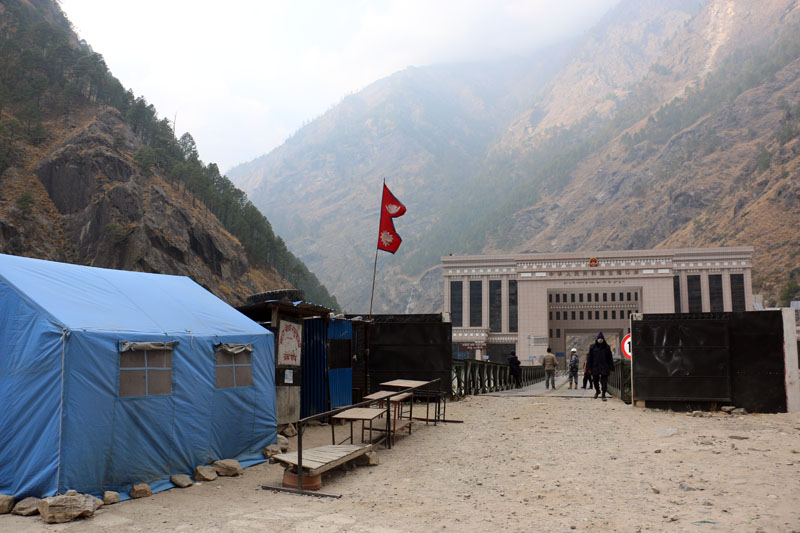Containers stalled at Rasuwagadi start entering Nepal
Kathmandu, March 13
Nepal-bound Chinese goods stalled at different Nepal-China border points have started entering the country from Thursday.
As per the Ministry of Industry, Commerce and Supplies (MoICS), stalled containers from different border points with China, especially from Rasuwagadi, have started entering Nepal after following some required quarantine procedures.
Following the government’s decision to shut Rasuwagadi border in a bid to prevent the spread of coronavirus in Nepal, almost 70 containers had been stalled at the border, as per traders.
However, MoICS officials informed that these containers have slowly started entering the country after completing quarantine tests.
“As the coronavirus is gradually being contained in China, we have started clearing the stalled containers after quarantine tests,” said Motilal Dugad, state minister for Industry, Commerce and Supplies, adding that traders will be allowed to import new goods from China soon after analysing the coronavirus situation.
The government had shut Rasuwagadi border on January 29 to prevent the spread of coronavirus after a rise in the number of infections in China. While a majority of Chinese businesses and industries were shut in China, the Nepal-bound containers were also stalled at the border.
As Nepal primarily imports readymade garments, footwear, chemical fertilisers, electronic goods, machinery parts, pipes, raw silk, telecommunication equipment and television equipment and parts from China, disruption in supply of these goods had resulted in their shortage in the domestic market.
Kamalesh Agrawal, vice-president of Nepal Chamber of Commerce, said that Chinese traders have conveyed a message to Nepali traders that things were getting back to normal in China and they are in a position to ensure normal supply to Nepal. “Stalled goods are slowly entering the market.
However, it might take a while for new Chinese goods to arrive in the market as the coronavirus is yet to be contained completely in China.”






